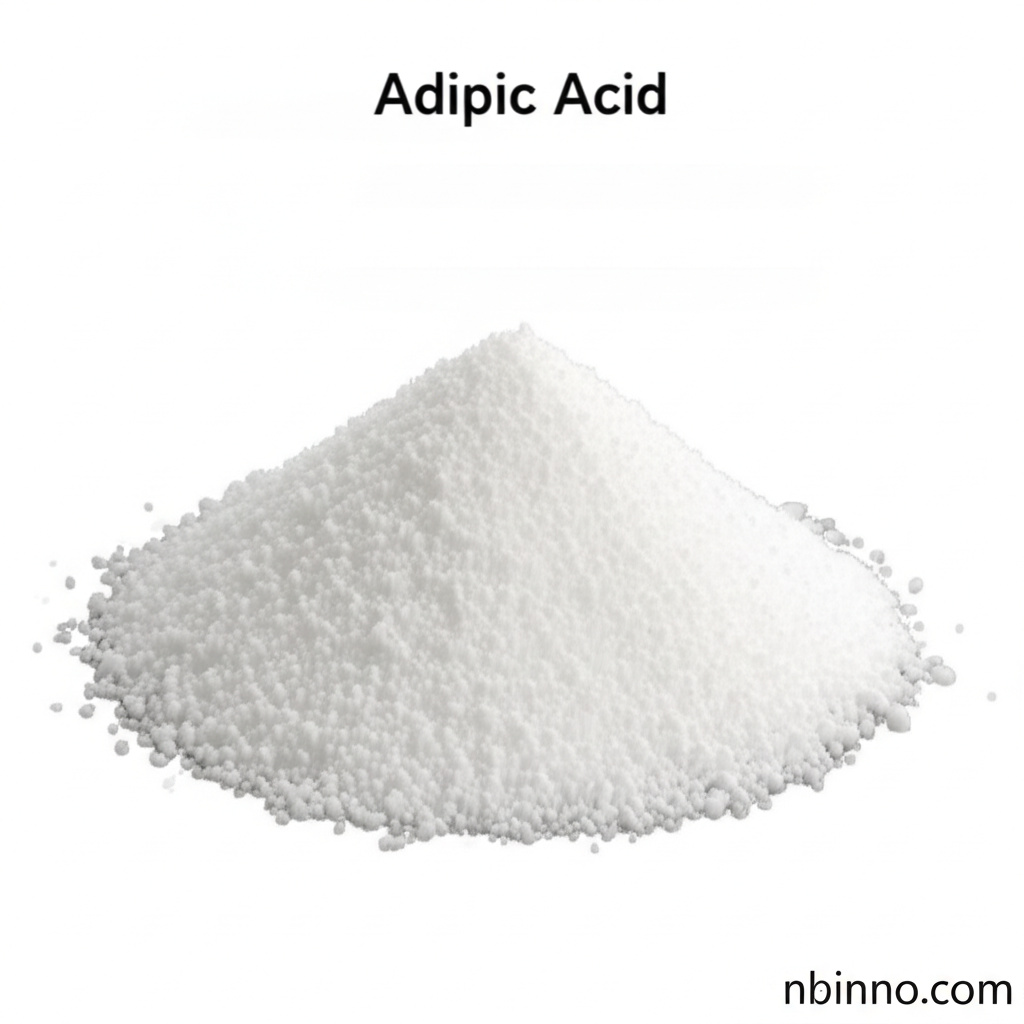Adipic Acid 99.8%: A Versatile Dicarboxylic Acid for Industrial Applications
Discover the industrial significance and diverse applications of high-purity Adipic Acid (CAS 124-04-9).
Get a Quote & SampleProduct Core Value

Adipic Acid
Adipic acid, also known as hexanedioic acid, is a fundamental organic dibasic acid with the chemical formula C6H10O4. It plays a critical role in the chemical industry as a precursor for high-performance polymers like Nylon 6-6 and polyurethanes. Its high purity, typically 99.8%, makes it suitable for demanding applications.
- This vital chemical intermediate, commonly found in its powder form, is essential for the production of Nylon 6-6, a widely used engineering thermoplastic.
- Leveraging its unique properties, adipic acid is a key component in manufacturing polyurethanes, contributing to flexible and rigid foams and elastomers.
- Beyond polymers, adipic acid serves as a functional ingredient in various food applications, often contributing tartness and aiding in texture retention for products like gelatin and jams.
- Its significance extends to organic synthesis and lubricant manufacturing, showcasing its versatility across multiple industrial sectors.
Key Advantages
Polymerization Precursor
As a critical monomer for nylon production, adipic acid enables the creation of strong, durable materials used extensively in textiles and automotive components.
Food Grade Applications
Its use as a food additive, such as in gelatin and beverage powders, highlights its safety and functionality in enhancing product quality and taste.
Chemical Synthesis Versatility
The reactivity of adipic acid as a dicarboxylic acid makes it valuable for numerous organic synthesis pathways, facilitating the creation of diverse chemical products.
Key Applications
Nylon Production
Adipic acid is the primary building block for Nylon 6-6, a material renowned for its high strength, toughness, and abrasion resistance, crucial for textiles and industrial parts.
Polyurethane Manufacturing
It serves as a crucial co-monomer in the synthesis of polyurethanes, leading to versatile materials used in foams, coatings, adhesives, and elastomers.
Food and Beverage Industry
Adipic acid functions as an acidulant, providing tartness and enhancing flavor in beverages, gelatins, jams, and baked goods.
Chemical Synthesis
It is a key intermediate in the production of various chemicals, including plasticizers, lubricants, and other organic compounds.
